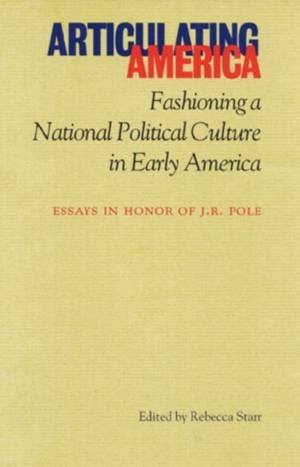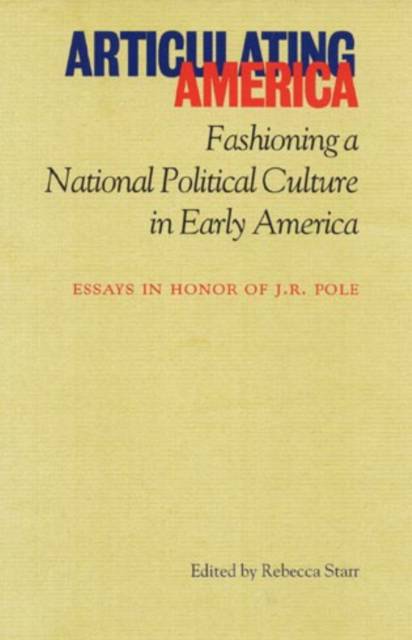
Bedankt voor het vertrouwen het afgelopen jaar! Om jou te bedanken bieden we GRATIS verzending (in België) aan op alles gedurende de hele maand januari.
- Afhalen na 1 uur in een winkel met voorraad
- In januari gratis thuislevering in België
- Ruim aanbod met 7 miljoen producten
Bedankt voor het vertrouwen het afgelopen jaar! Om jou te bedanken bieden we GRATIS verzending (in België) aan op alles gedurende de hele maand januari.
- Afhalen na 1 uur in een winkel met voorraad
- In januari gratis thuislevering in België
- Ruim aanbod met 7 miljoen producten
Zoeken
Articulating America
Fashioning a National Political Culture
Hardcover
€ 86,95
+ 173 punten
Omschrijving
In this collection of essays, seven distinguished historians explain how a national political culture developed in America. A political culture is both the collectivity of a community's values and a mode of behaviour - an end as well as a process of obtaining that end, which is always changing.
Specificaties
Betrokkenen
- Uitgeverij:
Inhoud
- Aantal bladzijden:
- 288
Eigenschappen
- Productcode (EAN):
- 9780742520769
- Verschijningsdatum:
- 11/02/2002
- Uitvoering:
- Hardcover
- Afmetingen:
- 158 mm x 236 mm
- Gewicht:
- 520 g

Alleen bij Standaard Boekhandel
+ 173 punten op je klantenkaart van Standaard Boekhandel
Beoordelingen
We publiceren alleen reviews die voldoen aan de voorwaarden voor reviews. Bekijk onze voorwaarden voor reviews.








